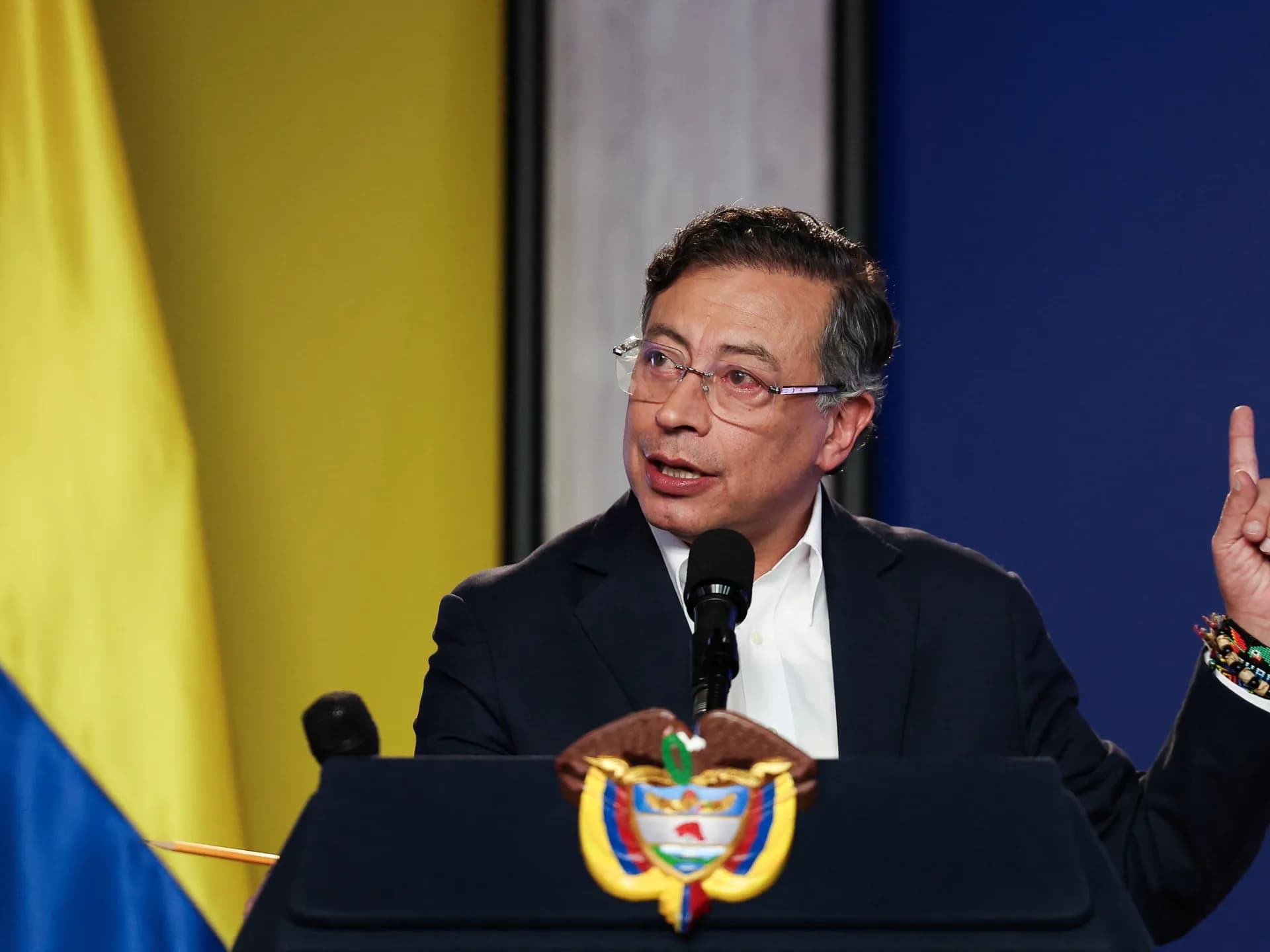We're loading the full news article for you. This includes the article content, images, author information, and related articles.
Washington's move to penalize a sitting head of state over drug policy sets a contentious global precedent, raising critical questions for Kenya as it navigates its role as a major transit hub in the international narcotics trade.

The United States government, under the administration of President Donald Trump, imposed sweeping sanctions on Colombian President Gustavo Petro on Friday, October 24, 2025, accusing his government of fostering a massive increase in cocaine production. The move, enacted under Executive Order 14059 which targets global illicit drug trafficking, marks a dramatic escalation in tensions between the two historically close allies and represents one of the rare instances of the U.S. sanctioning a sitting head of state.
In a statement released around 4:00 PM EAT, U.S. Treasury Secretary Scott Bessent claimed that since President Petro took office, "cocaine production in Colombia has exploded to the highest rate in decades, flooding the United States and poisoning Americans." The sanctions freeze any U.S. assets of President Petro and generally prohibit American citizens and entities from engaging in transactions with him. The measures were also extended to Petro’s wife, Verónica Alcocer García, his eldest son, Nicolás Petro Burgos, and his controversial Interior Minister, Armando Benedetti.
The sanctions are the culmination of a deepening ideological divide over counternarcotics strategy. Colombia has long been a cornerstone of Washington's "War on Drugs," receiving over $10 billion in U.S. assistance since the year 2000 to combat drug trafficking and armed groups. However, President Petro, Colombia's first left-wing leader, has branded this militarized approach a failure, advocating instead for policies that provide rural communities with alternatives to growing coca, the raw material for cocaine. He has argued for a focus on pursuing major cartel leaders and financiers rather than small-scale farmers.
This policy shift has clashed with the Trump administration's hardline stance. Tensions have recently flared over U.S. military strikes on boats in the Caribbean alleged to be smuggling drugs, which resulted in the deaths of several individuals, including Colombian nationals. Petro condemned the strikes as "murder," while President Trump labeled Petro an "illegal drug dealer" and vowed to halt all U.S. aid to the South American nation.
The U.S. Treasury's decision leans heavily on recent statistics from the United Nations Office on Drugs and Crime (UNODC), which reported that potential cocaine production in Colombia saw a significant increase in 2023. The UNODC's World Drug Report 2025 indicated that global cocaine production reached record levels, largely driven by a surge in Colombia. President Petro has publicly contested these figures, asking the UN to revise its report due to what he termed “methodological errors.”
While the diplomatic fallout is centered in the Americas, the U.S. action carries significant implications for Kenya. As a nation identified by international bodies, including the Eastern and Southern Africa Commission on Drugs (ESACD), as a critical transit hub for cocaine and heroin destined for Europe and Asia, Kenya's own counternarcotics strategy is under constant international scrutiny. The U.S. has been a key partner in regional anti-trafficking efforts, exemplified by the collaboration that led to the successful prosecution of the Akasha drug ring.
The sanctioning of a sovereign leader over domestic drug policy sets a powerful precedent. It signals a willingness by Washington to deploy severe economic tools against partner nations deemed to be failing in the drug war. This raises questions about the potential for similar pressure to be applied to other transit countries, including Kenya, should their anti-narcotics efforts be judged insufficient.
Furthermore, the breakdown in U.S.-Colombia cooperation could disrupt global intelligence sharing and joint operations targeting the transnational cartels that use African nations as logistical hubs. Reports from security analysts indicate that Latin American cartels have formed alliances with criminal networks in Africa to facilitate the flow of narcotics. A fractured relationship between the primary source country (Colombia) and a primary destination/enforcement country (U.S.) could create operational vacuums that these international criminal organizations are quick to exploit, potentially increasing the volume of drugs trafficked through East Africa.
For now, Kenyan authorities remain watchful. The unprecedented U.S. action against President Petro serves as a stark reminder of the high geopolitical stakes intertwined with the global fight against narcotics, a fight in which Kenya remains a crucial frontline state.
Keep the conversation in one place—threads here stay linked to the story and in the forums.
Sign in to start a discussion
Start a conversation about this story and keep it linked here.
Other hot threads
E-sports and Gaming Community in Kenya
Active 9 months ago
The Role of Technology in Modern Agriculture (AgriTech)
Active 9 months ago
Popular Recreational Activities Across Counties
Active 9 months ago
Investing in Youth Sports Development Programs
Active 9 months ago